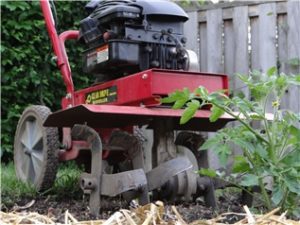Homo Faber, WTF
The Atlantic published an article on The 50 Greatest Breakthroughs Since the Wheel. This compilation of technological achievements reached back 6000 years thereabouts. Wendell Berry has said that it was a tool or a weapon that has been the prime mover of change in human history. That is a reasonable assessment as far as I am concerned. Tools change our lives materially and culturally. Our intention is a material advantage: improvement in communication, to cure a disease, or to grow more food. In the aftermath of our success, inevitably we find that our way of life has transformed in ways that we could not foresee.
The Atlantic article reminded me of a conversation with my mother. Mom lived in the mid twentieth century, growing up on a rural farm in North Carolina. When asked about the Great Depression she said that they never noticed it, as her family lived much the same as they always had. Her family was large. My grandparents had a son, and seven daughters. They lived by the plow. Mom remembered walking behind her father as he plowed with a mule, dropping seeds into the furrow. She recalled her dads delight upon the purchase of his first Ford tractor.
There were several inventions on the Atlantic’s list that were relevant to my mothers story: No 7 the internal combustion engine, No 10 the steam engine, No 19 industrial steel making (the Bessemer process) and No 30 the moldboard plow. It dawned upon me that these inventions continue to link me to my mother and her way of life.
 Without the sharpened steel edge of a plow there would not be enough to eat. Humanity would be exponentially fewer in number. I was reminded of this as I examined my five and a half horsepower roto-tiller, powered by a Briggs and Stratton engine. This is the suburban gardener’s tractor. Without the rotating tines of the little machine, driven by gasoline and air mixed to be ignited by an electrical spark, I would be hard pressed to dig up my smallish patch of ground by hand. The twelve tomato plants, and the twelve squash and cucumber plants would not be nearly as productive without the machinery to harness the ancient sun-power stored in gasoline.
Without the sharpened steel edge of a plow there would not be enough to eat. Humanity would be exponentially fewer in number. I was reminded of this as I examined my five and a half horsepower roto-tiller, powered by a Briggs and Stratton engine. This is the suburban gardener’s tractor. Without the rotating tines of the little machine, driven by gasoline and air mixed to be ignited by an electrical spark, I would be hard pressed to dig up my smallish patch of ground by hand. The twelve tomato plants, and the twelve squash and cucumber plants would not be nearly as productive without the machinery to harness the ancient sun-power stored in gasoline.
Not only do we eat better, but we have time left over for other things. It’s certain that my little garden will produce a surplus and some will be given away. Life is made “better” materially and culturally.

However it would be premature to begin to celebrate the inevitability of progress, the certainty that things will get better for everyone, in every way. The same technological advances, steel making, engineering and mechanization have been put to work for other purposes. Perhaps it would be best if we resist the temptation to rationalize what our eyes see…..just confess that the truth of the matter is right in front of our eyes. The more things change, the more they remain the same. “Progress” depends on where you happen to be.
When I think of the sweep of history, all that we humans have accomplished I want to build an altar to pay homage to the human spirit. Then something like this artillery piece hurling death into a city, prompts me to curtail my enthusiasm.